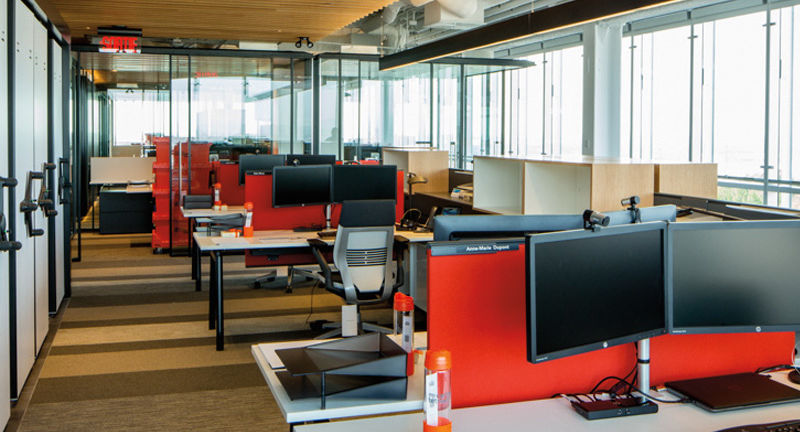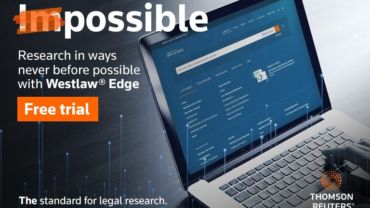In a special edition of our "Practice Innovations" newsletter, we look at the challenges facing the legal industry & the solutions available, like office hoteling
As part of their COVID-19 pandemic response plans, law firm leaders are taking a serious look at supporting a new working norm that combines office hoteling and so-called “hot desking” with continued remote work from home. Many are wondering if firms have the technology they need to support this new approach and how far and how fast they can move to get there.
Hot desking v. hoteling
Hot desking is the idea that a worker can show up at any office on any day and choose from any available shared workstation space. While this sounds flexible and efficient, early adopters found that, in fact, workers lost up to 30 minutes each day simply finding a workstation and settling in.
To overcome this challenge, many organizations shifted to “hoteling,” which allows a worker to reserve a workspace in advance for a given period of time. Businesses that embrace hoteling typically also embrace open workspace design. The two together allow the worker to reserve a space with specialized resources that fits their needs for a given time period. If they need quiet time to concentrate, for example, they can reserve a quiet space. If they need special equipment, like a nearby printer or copier, they can reserve a workspace adjacent to that equipment. If they need to meet with colleagues, clients or customers, they can reserve a team room or a public meeting room with appropriate reception and hospitality services.
In any organization with a significant mobile or remote workforce, both hot desking and hoteling are proven to deliver significant financial benefits by reducing the organization’s real estate investments as well as the capital and operating costs associated with providing an individual with a dedicated desk and workspace.
What technology is required?
Both hot desking and hoteling require a robust, “smart working” environment to support these highly mobile work styles. Once a worker arrives at their assigned location, they can’t spend a lot of time getting themselves connected to the network and voice connections. Ideally, they would have a laptop with Voice Over IP (VOIP) services so they only need to sit down, connect their laptop to the office infrastructure, login, and get to work. However, if they are sitting down to a permanent physical workstation and phone at a desk, then there must be technology in place to automatically configure the workstation with all of their software and preferences at login and a way to automatically activate their personal phone number on the phone at the desk. And reliance on paper files will be out of the question; electronic files will need to be the norm, along with ready access to them at anytime from anywhere.
A corollary challenge is managing the complicated process of finding an available hot desk or reserving a workspace in advance. Fortunately, there are a large number of software applications available that have been working this way for many years and are well proven by organizations. The software would allow a lawyer to use a web or mobile application to reserve a desk or workspace and any other necessary resources. Once the lawyer arrives at the office, they would login and “register,” much as they would register at a hotel. If the lawyer is not familiar with the office layout, the application would offer indoor navigation that would guide the lawyer to his or her assigned location. And, where needed, the application would do the necessary device mapping for a desktop workstation or phone.
In any organization with a significant mobile or remote workforce, both hot desking and hoteling are proven to deliver significant financial benefits by reducing the organization’s real estate investments as well as the capital and operating costs associated with providing an individual with a dedicated desk and workspace.
What if an individual were to “hog resources” by booking multiple desks or workspaces simultaneously, or reserving spaces for long periods of time, without actually using them? Hoteling software is smart enough to detect both of these abuses and can be programmed to address them based on rules the organization defines. For example, a reservation could be automatically cancelled two hours after a “no show,” or someone could be alerted to multiple abuses so that they could be addressed with the individual.
So, imagine this highly mobile work style, where a lawyer could be working at one of many temporarily assigned workspaces in the office on any given day. How could two colleagues who want to meet face-to-face (with proper social distancing, of course) find each other easily and quickly? Many organizations are solving this challenge with mobile wayfinding software that presents a map of an office space showing a pin for the location of a specific colleague, and providing directions to that location, just like Google Maps.
How far & how fast can a law firm move?
As COVID-19 stay-at-home orders relax and lawyers and staff return to work in their physical offices, often while continuing to work remotely at least part time, many law firms want to offer hot desking or hoteling options as quickly as possible. In order to do so, they will need to consider several key factors, such as:
-
-
- Does our existing physical office space lend itself to shared workspaces? If not, how costly and time consuming will it be to reconfigure the space?
- Do enough lawyers have laptops and VOIP devices to make this practical?
- Can we quickly configure desktop workstations and phones to be used by different people on little or no notice?
- How reliant are we on paper files, and how quickly can we transition to electronic files?
- Can we manage hot desking and hoteling reservations manually, or do we need hoteling software to do so? If so, justify the cost, and how quickly can we implement it?
-
What’s in the future?
Once the initial COVID-19 pandemic response is behind us, it will be very interesting to observe whether permanent changes will remain in the way law firms view their facilities and technology.
As firms renovate existing spaces or move to new spaces, will they affirmatively embrace the open office, and even smart office approaches that other industries use to enable their mobile workforces? The future will be telling.






